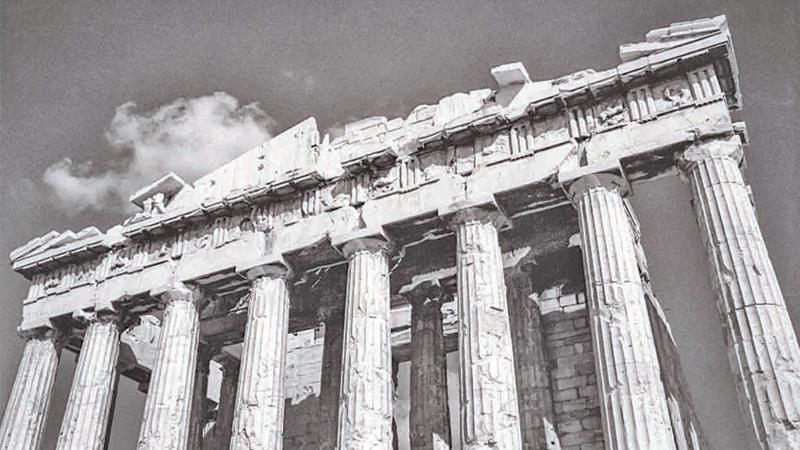
Centuries ago Athens gave birth to democracy, a new form of effective, productive, positive and plausible government and a step in the right direction. ‘Democracy’ was adjudged a viable form of administration over the world with its undisputed resourcefulness for mass management and mastery. India remains the largest democracy in the world while Sri Lanka is running her 71st year of unabridged democratic rule. Political analysts are perceptive that underneath the democratic set up, lie dry dictatorship, covered by a thick blanket of Democracy, and once the blanket is removed, true dictatorship surfaces. Politicians grab such explosive situations for their own selfish motives.
The three iron pillars resting the edifice of democratic institutions, the Legislature, Executive and Judiciary, are maintained by the rate-payer directly by his sweat and strength of sinews. It is not a simple task to sustain and rehabilitate such enormous institutions, requiring billions and trillions of rupees a month to pay for salaries, allowances, amenities, car permits, perks, trips overseas, free canteen meals and pension rights.
Precisely, such astronomic funds resemble those of a herd of white elephants and rate-payers cannot afford to meet such bills monthly. That is why the balance of payments can never be kept under control. Much of these funds are wasteful and unproductive and can easily be dispensed with. Salaries and allowances can be minimized reasonably and a score of amenities provided are mere luxuries which Members of Parliament can easily forego. Car permits are a flourishing racket where they become collectors of lakhs of rupees overnight.
In addition, these representatives, many of who can be conveniently scrapped, should not be permitted to squander Treasury funds for globe trotting on utterly fruitless errands, thus wasting the country’s well earned resources. The Parliament canteen should be compulsorily fee-levying as MPs and Ministers can easily pay their bills, without imposing liabilities on the poor rate-payer. Another most detestable piece of legislation that has been in vogue for over four decades in Sri Lanka, is the grant of pension rights to parliamentarians, after just five years of service.
This enactment is most despicable, despotic dreary and therefore, should be discontinued. These are a few menacing attributes which should be obliterated from the antiquated Statute, thus releasing the last straw that would break the camel’s back. A pension is given to public servants, on reaching sixty years of age. They work eight hours a day and earn a meagre wage to bring up a family of three or more. It is indeed a hand-to-mouth existence, with a host of other obligations, which have to be accommodated within their salary.
The pension they derive would be less than their salary. With old age and deterioration of health, public servants suffer the worst. On the converse, parliamentarians get a handsome pension, even when they cease to hold office after just five years of a session, which is quite unjustifiable and irrational. The Constitution should be revamped without allowing it to exploit the masses, the bulk of who are rate-payers and wage earners. The white elephant concept of democracy and democratic institutions should be eliminated forthwith.
Democracy, an affable, adept, and above-board form of government in the past, has had its usefulness emaciated gradually, with the wicked political rulers usurping its aura, ardour and acumen for their own selfish motives and possessiveness. Politicians enacted opulent amendments to the democratic way of life and its constitution to gain sheer power.
Interested parties translated and transgressed democratic rules and regulations for sinister ideals. These are a few instances where democracy was brutally assailed and stripped of its meaning in the yore as well as in recent times, with neither redress nor compromise. When state institutions debilitate mainly due to prejudiced rulers and their coterie, democracy wanes and runs out of its force and accountability. It simply condescends to prove a spent force, worthy of being placed on a shelf as a showpiece. This is the fate of most democracies in the world today.
Some argue that simply because democratic institutions fail and pale, democracy itself cannot be blamed or penalised. It is true however, that at its fruition democracy was received with applause and credibility. As the years rolled by, politicians and rulers began tampering with it and building inroads to the democratic system, which tended to disown significant, safe and sound inbuilt checks and balances for its sustainable productivity. This situation has cropped up due to errant politicians. Democracy was, therefore, saddled in a parlous situation. In the gruelling scenario and the absence of viable means to stabilize, democracy began to exhibit signs of a spent-force.
Democracy today is an ideal form of governance, suitable for corrupt and vindictive politicians. The lustre and leverage of democracy and democratic rule lapsed long ago, mainly due to its abuse and aberration by lawless patrons, such as parliamentarians and counsellors. Therefore, honest and genuine advocates and authorities of democracy must pool their resources and expertise to revamp this form of governance, and energize its potentiality and utility, free from inroads. The revision, amendments, reviews and redrafts together with checks and balances for a robust democracy should be modelled preventing vicious and egocentric characters from manipulating and sabotaging the democratic set up. Its sacred functions should be reviewed periodically. Only then can it be put to its vibrant use safeguarding its image and concept. The resurrection of democracy, punishing and weeding out its rivals and schemers, is a crying need today for good governance.
The writer, a retired public servant was attached to the Ministry of Foreign Affairs, Colombo as an Administrative Officer and worked abroad in two Sri Lankan embassies for about 10 years.
